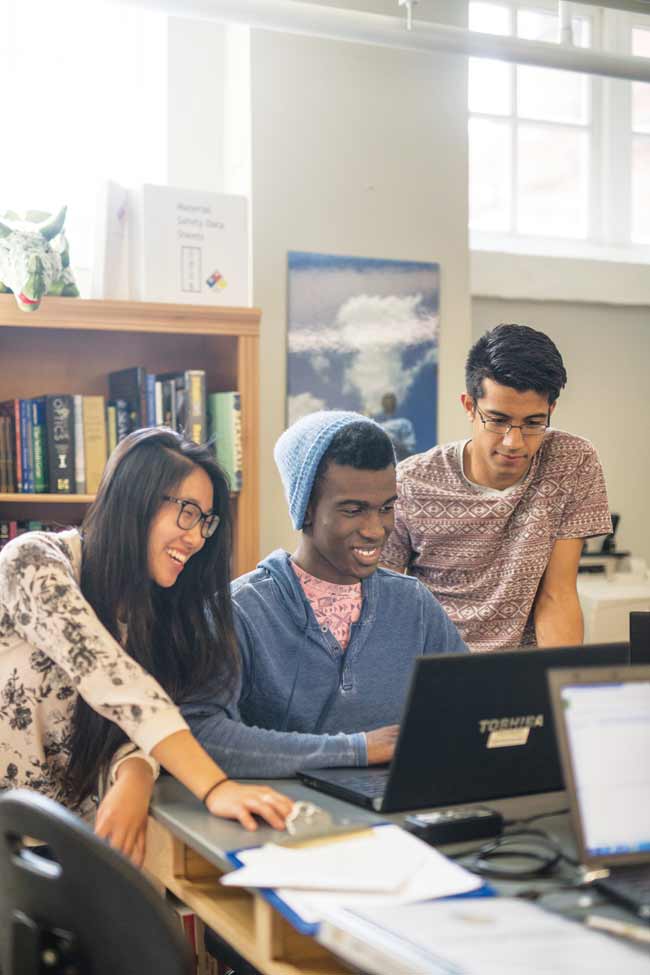
Journey to the lower recesses of Peabody College’s Wyatt Center on any given day of the academic year and you will find a classroom full of students who appear too young to be studying on campus.
These teenagers are conducting experiments, writing papers for scientific journals and collaborating with Vanderbilt faculty on research projects in the disciplines of science, technology, engineering and mathematics. This is the School for Science and Math at Vanderbilt, a unique four-year research-centered learning experience for 100 eager high school students from Nashville public schools, selected to participate based on their grades, aptitude and passion for learning. The SSMV is a program of the Vanderbilt Center for Science Outreach in Peabody’s Department of Teaching and Learning.
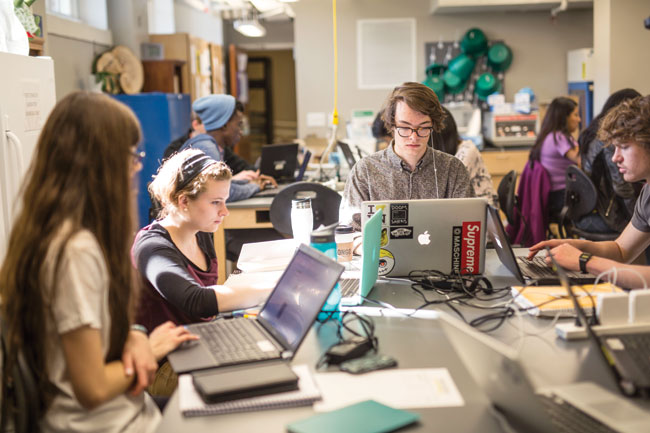
In the newly renovated lab and classroom in the Wyatt Center, the teens learn from Vanderbilt instructors in disciplines like molecular biology, physics, earth science, electrical engineering and more. From their freshman to senior year, the students attend the SSMV for one day a week.
A core group of educators and researchers work with them to build strong academic and personal foundations, guiding them toward the field that they may pursue in their undergraduate careers and beyond.
“We like to introduce the students to faculty as early as their freshman year,” SSMV Director Angela Eeds said.
“It has a very interdisciplinary focus,” Hillsboro High School’s Alex Jolly said. “Almost every day is focused on a new task: one day we’re looking at biofuels, another day we’re looking at seabird boluses, another day we’re looking at addiction.”
“We were introduced to engineering, genetics and hydrology, among other areas of study,” Overton High School’s Catherine English said. “The activities were very hands-on and taught us a lot about how to ask different questions, in addition to answering them.”
Each year, the SSMV program intensifies, going from lectures and group projects to one-on-one-pairings with faculty researchers. Each student is thoughtfully matched with a principal investigator and a lab based on the student’s interests as determined by the student and faculty together.
“Before we were paired up with our laboratories, the faculty asked us questions about things that we enjoy—which lectures did we like the most,” said Martin Luther King Jr. Magnet School’s Zaixing “Able” Shi. “It’s a phenomenal process. I couldn’t be happier with the lab I was in.”
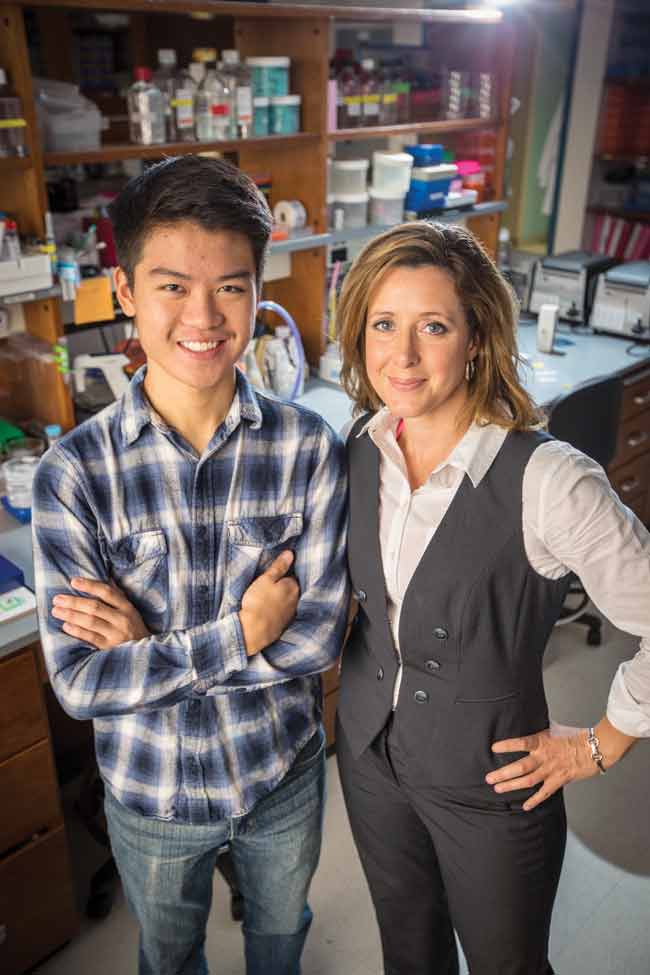
Shi worked with Rebecca Cook, assistant professor of cancer biology at the Vanderbilt Ingram Cancer Center. He was tasked with making genetic connections between melanoma and breast cancer.
Under the mentorship of a postdoctoral student who taught him the basics, Shi gradually took ownership of the project, analyzing samples and compiling the results into a report that was published in several scientific journals and landed him the distinction of being the only Tennessee finalist in the highly competitive Siemen’s Competition in Math, Science and Technology.
Shi said that the lab experience was a huge help as he made plans for college. “It was a great opportunity to have access to laboratory experience at such a young age,” he said. He will attend Vanderbilt this fall.
English was paired with Assistant Research Professor Carrie Greuter and her husband Brad Grueter, assistant professor of anesthesiology. English worked in their lab alongside postdoctoral and graduate students tabulating expression levels of various genes related to metabolism in the brains of mice. Over time, English moved into staining the mouse brains to see distributions of genes and analyzing the neurobehavioral effects of adjustments to diet.
“It was one of the most rewarding experiences of my life,” English said.
Alex Jolly worked on a robotic vehicle project and then progressed to working with Associate Professor of Chemistry Brian Bachmann in his cave drug research. Jolly helped design a project characterizing cave bacteria, and advanced to the semifinals in the Intel Science Talent Search with his research paper, “Activation of Silent Biosynthetic Pathways in Cave Microorganisms for Drug Discovery.”
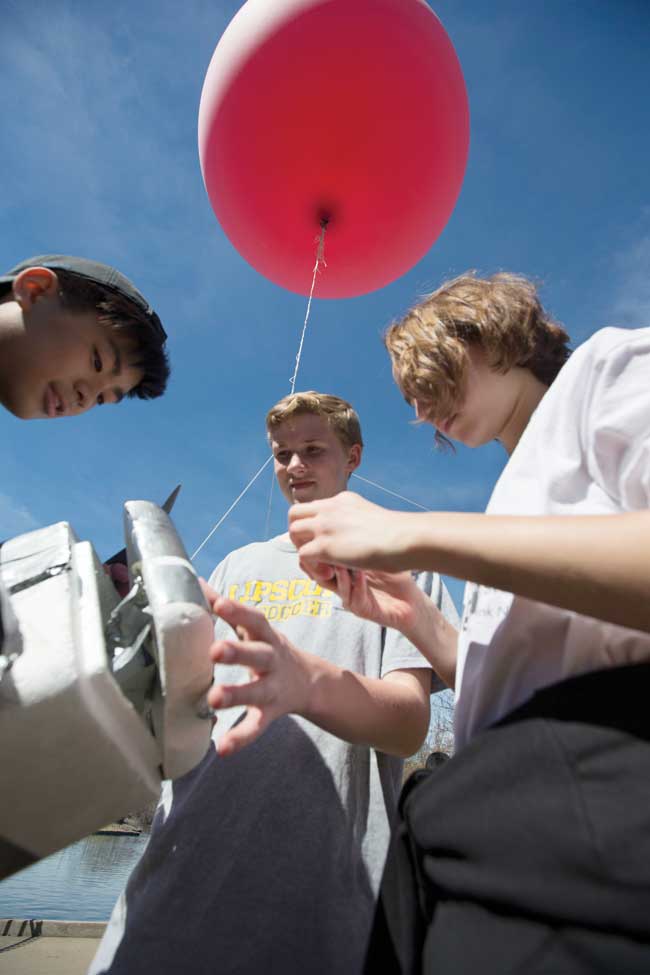
“Participating in SSMV and working with Dr. Bachmann have made a tremendous impact on me and my career and education aspirations,” said Jolly, who starts at Vanderbilt this fall. “This has pushed me to grow in my confidence, abilities and knowledge and has had a huge impact on my path to becoming a professional scientist.”
The SSMV does not solely seek to push its scholars toward intensive STEM universities and careers, according to Virginia Shepherd, director of the Center for Science Outreach and professor of pathology, microbiology and immunology. It’s all about helping them discover the path the student is most excited about and best suited for, she said.
“We are not only trying to create scientists or engineers,” Shepherd said. “We’re trying to create critical thinkers and problem-solvers who can use those skills to go into a variety of fields.”
English has been accepted to Vanderbilt as a Cornelius Vanderbilt Scholar. She plans to declare majors in secondary education and biological sciences. “This experience has taught me not only about different areas of science and scientific inquiry, but also about myself and what I want to do in life,” she said. “I want to expose more people to this kind of experience.”
SSMV has been measuring its academic impact via Metro Nashville public schools, which tracks the students’ ACT scores, end-of-course tests, AP tests and more against a control group.
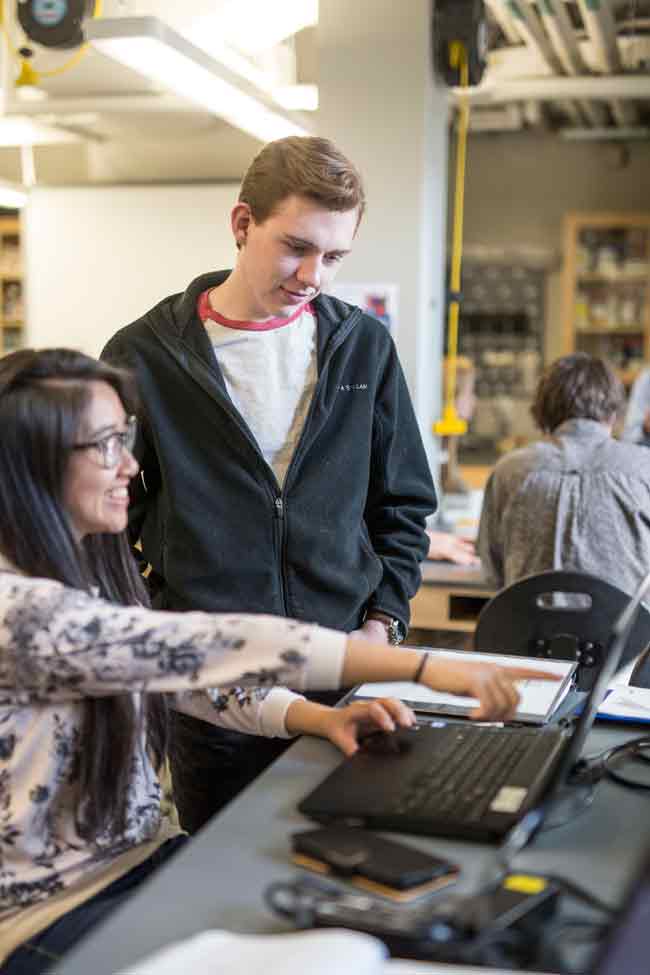
“In every single case, our students matched to their peers were significantly higher in their gains on all of their measures,” Shepherd said. “In terms of our student placements in top STEM competitions, the SSMV ranks among the top high schools in the country.”
As the fifth class of SSMV students moves toward college, the program’s long hoped-for expansion is taking root. Backed by grants from the National Science Foundation and National Institutes of Health, the SSMV has been replicated at the University of Alabama at Birmingham. In addition to providing a beneficial program to the community, the UAB branch will be a helpful comparison to determine what components are key to the program.
“We’re going through and really trying to define what is fundamental to the program and what needs to be adapted or changed as we move forward,” Shepherd said. She hopes to ultimately expand into 20 markets.
“These are students who are capable of doing great things,” Eeds said. “Until the SSMV, they just didn’t have access to this kind of hands-on approach to learning.”
Jolly sums it up this way: “It’s shown me that if I put my mind to it and really put work into it, I can achieve anything I want to as long as I have the heart to push forward and keep going.”
Learn more a vanderbilt.edu/cso.